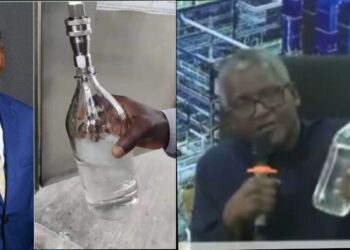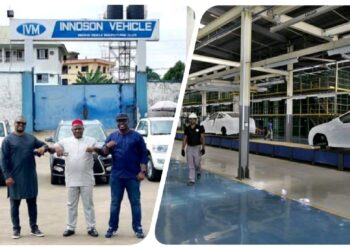
There are great untapped potentials in the use of CNG, and if the government gets its implementation right, it will bring down our reliance on crude oil derivatives and also reduce the price of transportation.
It is 2023, and the subsidy on PMS petrol is gone! The cost of moving from one point to another has tripled due to the rise in fueling costs. However, there is fuel that has been around for quite some time, but no one really paid much attention to it. It is called CNG, compressed natural gas. I can remember as far back as 2016 when bus drivers loading Lagos to Ibadan had converted buses and would fill up at Mowe-Ibafo area before heading to Ibadan, so it’s been around for a while commercially.
So, how is CNG obtained, and why is it cheaper than conventional fuels (diesel, petrol, kerosene, LPG)?
Compressed natural gas, in its basic form, is found in the ground while drilling for crude oil. The gas is then separated from oil, goes through several levels of purification, and is then compressed to about 3600 pounds per square inch. CNG is cheaper because you do not need a billion-dollar refinery to process the end product; the cost of separation and purification is relatively very cheap.
Unlike the other derivatives of crude oil (diesel, petrol, kerosene, jet fuel, etc.) that are controlled by world crude oil prices, CNG is in a world of its own, not in competition with any fuels.
The Basics of CNG Conversion Kit Installation
DISCLAIMER
This post has been produced and written for educational purposes only. Gazzuzz strongly recommends that all CNG conversions be completed by an experienced certified mechanic familiar with CNG systems.
Before performing any installation, you should be familiar with all common governing regulations applicable to CNG conversions.”
CNG conversion kit installation is a complex process that should only be undertaken by professionals with a thorough understanding of CNG systems. As Gazzuzz strongly emphasizes, it is crucial to comply with all relevant regulations governing CNG conversions.
To begin the installation process, certain components need to be installed in the vehicle. The most important part is the CNG tank, which is responsible for storing the compressed natural gas. Depending on the vehicle type and desired range, the tank can be installed in different locations, such as the trunk or undercarriage.
In addition to the CNG tank, a regulator and mixer are also necessary. The regulator controls the flow of CNG from the tank to the engine, ensuring a consistent supply of fuel. The mixer, on the other hand, blends the CNG with air before it enters the engine for combustion. This ensures proper fuel-air mixture ratios and optimizes engine performance.
After installing these components, the vehicle’s fuel system needs to be modified. The existing fuel injectors are replaced with CNG-compatible injectors, which can handle the high-pressure nature of compressed natural gas. These specialized injectors ensure efficient fuel delivery to the engine.
It is essential to mention that the electronic control unit (ECU) of the vehicle also needs to be reprogrammed or replaced with a CNG-specific ECU. This allows the vehicle to recognize and optimize the use of CNG as a fuel source.
Once all the components are installed and the necessary modifications are made, thorough testing is required to ensure the system’s safety and proper functioning. This includes leak tests, pressure checks, and overall system performance evaluations. It is vital to have an experienced mechanic conduct these tests to guarantee that the installation meets the required safety standards.
Finally, after a successful installation and testing, the vehicle is ready to operate on CNG. It is important to note that proper maintenance and periodic inspections are key to the long-term success of a CNG-fueled vehicle.
In conclusion, CNG offers a promising alternative to conventional fuels in Nigeria. With proper implementation and widespread adoption, CNG could significantly reduce transportation costs and decrease the country’s reliance on petrol. However, it is important to approach CNG conversion with caution and ensure that it is carried out by experienced professionals in compliance with all relevant regulations.











